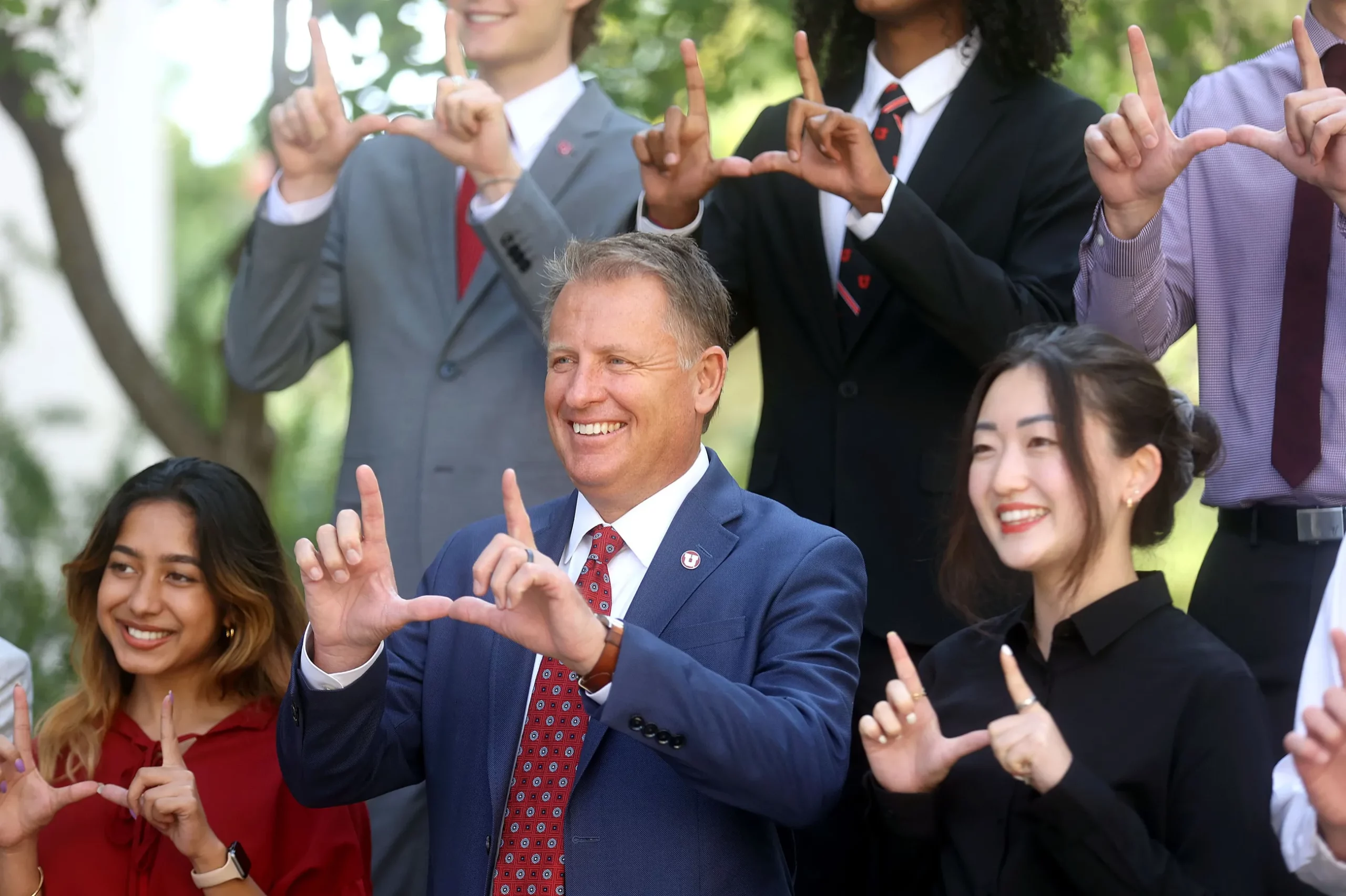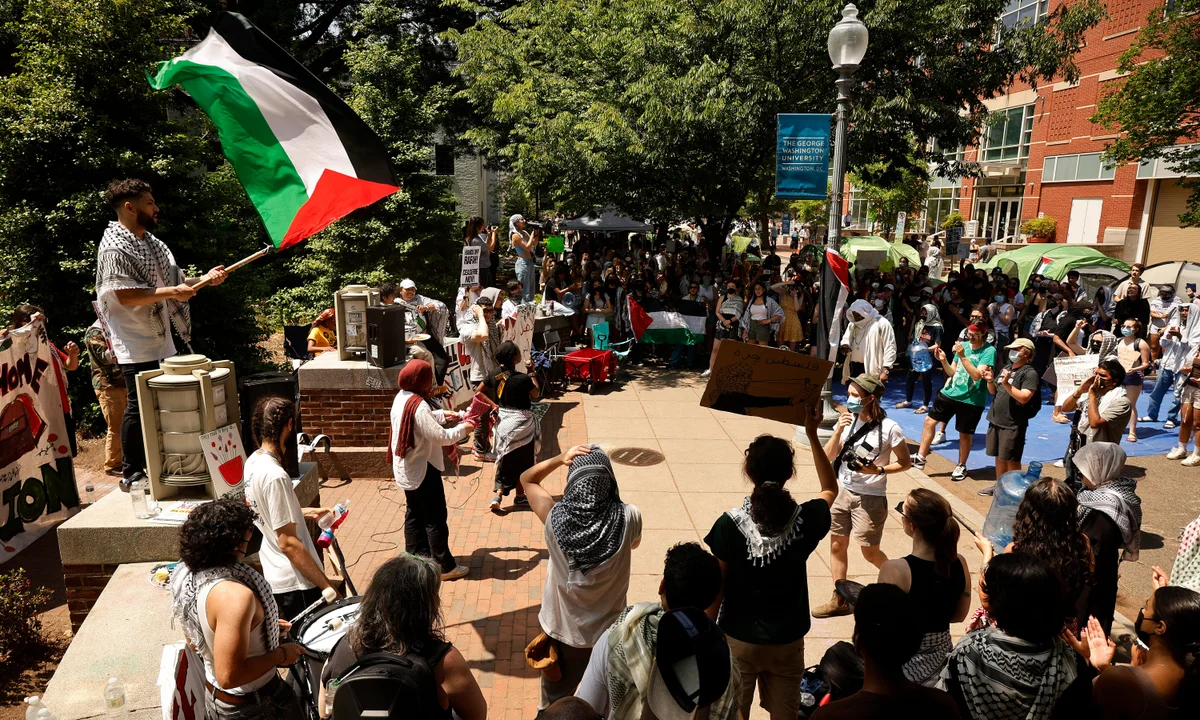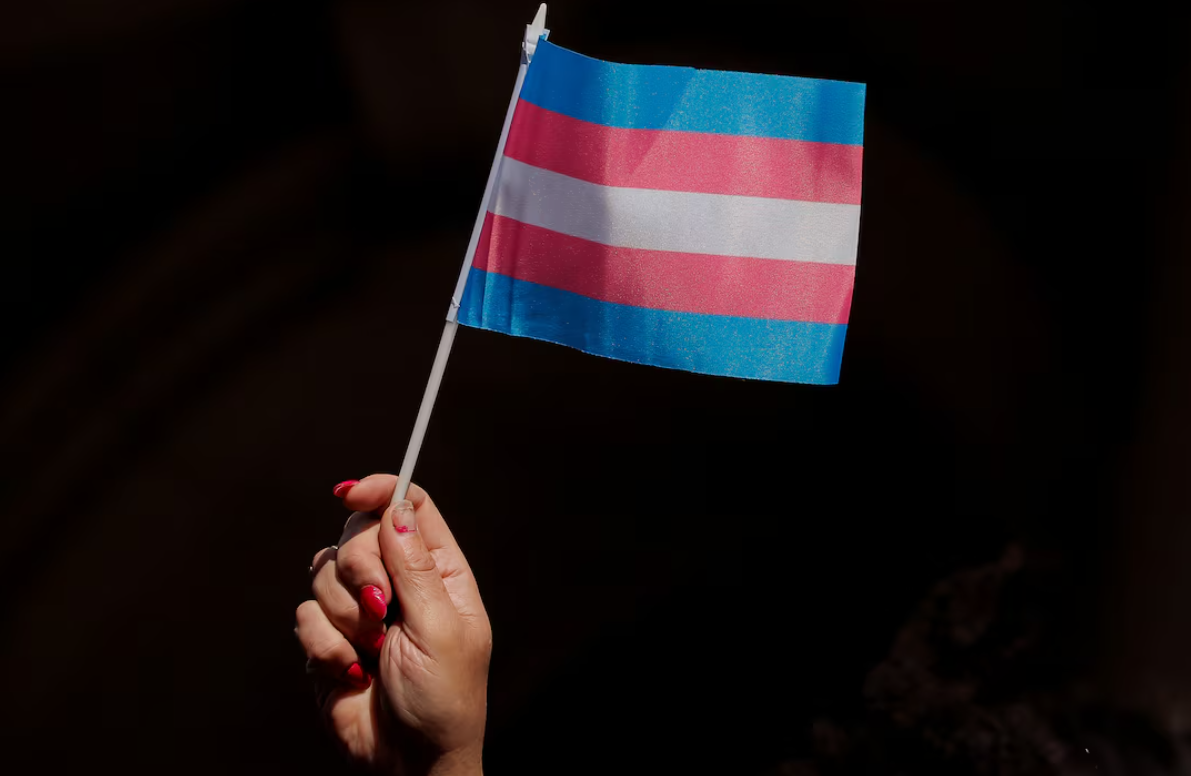The university’s core values are ‘unchanged’ after passage of DEI, trans bathroom bills, University of Utah president tells Academic Senate.
University of Utah President Taylor Randall acknowledged the state’s flagship institution’s “pain and hurt” after the passage of legislation that requires replacement of colleges’ diversity, equity and inclusion offices and another regulating the use of restrooms, dressing rooms and showers in public schools and government-owned buildings.
“First and foremost, these bills do not change the values of this institution,” Randall told members of the Academic Senate earlier this week.
“We have always felt that the University of Utah and its diversity of people, thoughts, viewpoints is its strength. And in fact, it’s the strength of what we would say a university, particularly our university, is what we think we need to expose our students to and our communities to. Our values are going to remain steadfast in this way, though, for sure, these bills are asking us to change some of the ways in which we execute our work.”
The Utah Legislature passed HB261, which prohibits diversity statements in job applications and trainings in government jobs that are ideological and place one race, gender or nationality above another.
In late December, the Utah System of Higher Education announced that public colleges and university would be phasing out DEI statements used in hiring and “is committed to navigating the complexities of these issues to ensure institutions meet their core missions, ensure equal opportunity hiring practices, and support all students,” it said in a statement.
The announcement came after Utah Gov. Spencer Cox, during his televised PBS press conference earlier in the month, said, “I think it’s bordering on evil that we’re forcing people into a political framework before they can even apply for a job in the state.”
Under the legislation, DEI offices will be replaced with “student success centers” and the terms diversity, equity and inclusion will be prohibited.
HB261 does not take effect until this summer, which will give the university time to study the new law and more fully understand its impact, he said.
Proponents of the bill say it will “level the playing field” for all university students with assistance and support.
Cox, in a statement upon the bill’s passage said, “We’ve been concerned about some (diversity, equity and inclusion) programs and policies, particularly with hiring practices, and this bill offers a balanced solution. I’m grateful to the Legislature for not following the lead of other states that simply eliminated (diversity, equity and inclusion) funding with no alternative path for students who may be struggling. Instead, this funding will be repurposed to help all Utah students succeed regardless of their background.”
Randall urged the faculty’s assistance in assessing the effects of the DEI legislation noting an email address has been created where faculty and staff can express concerns, share information and seek answers to questions. He also vowed to conduct a town hall meeting on campus.
“We have some time. It (HB261) does not become law until July 1. So what we would like to be is thoughtful and take a little time to understand all of the ramifications before making massive organizational changes,” he said.
Randall said he has met with the university’s central DEI offices and “have assured them that their jobs are in good standing and that we will work with them particularly as we try to reorganize ourselves in ways that are consistent with this new law.”
Some Academic Senate members said they feared the legislation would have a chilling effect on academia, applying for grants and recruiting faculty and graduate students.
Academic Senate member associate professor Patrick Panos, who teaches in the College Of Social Work, said HB261 “basically outlaws each one of our accreditation standards. Now I know that the bill says that it doesn’t affect accreditation, but you have a bunch of faculty panicking. This is the only thing I can say because this is our research. This is what we teach. This is what we stand for. We’re not getting a lot of guidance from the university over what this means.”
Randall responded: “We’re committed to get into the weeds with your college to try to provide some guidance. Again, the bill does not take effect until July 1 so we’ve got some time to thoughtfully think through this and use the window that this bill gives us to try to figure out the specific issues.”
Some faculty have interpreted HB261 to mean they should not use the words diversity and inclusiveness in their writing and other applications.
Randall said he, other top administrators and legal counsel continue to review the impacts of the legislation.
“What we can’t have is an office titled Diversity, Equity and Inclusion. I don’t think this law was intended to keep people from talking about these issues. In fact, just the opposite. My sense in the discussions with our legislators is they do want to create an environment where everyone can thrive and so I think talking about these things is actually important,” he said.
Academic Senate member Patrick Tripeny, a professor in the School Of Architecture, said he was disappointed the university and administration did not take a firmer stand against HB261. Cox has signed it and HB257 into law.
“I think we needed to say from the very beginning that the University of Utah believes in DEI, we believe in our offices of DEI. It’s a part of who we are and what we do and we’re completely and absolutely against a bill that outlaws it. I think we missed it and I’m very disappointed about that,” he said.
Randall said he appreciated Tripeny’s strong feelings on the issue.
“We were engaged at every step defending what we felt are consistent with your beliefs and the beliefs of the faculty. We certainly worked hard to try to get a compromise that would allow us to continue to hold our value of being an inclusive and diverse institution, which is important to us, and we’re certainly committed to that. I’m sorry if you did not feel that we were strong enough in our defense, but we did spend many hours working this bill in a variety of circumstances and voicing our opinion,” he said.
With respect to HB257, which requires transgender people to use a public restroom or locker room consistent with their sex designated at birth, unless they’ve fully transitioned, will require “intense legal analysis,” Randall said.
“This is a difficult bill for our campus and our community particularly in trying to welcome all individuals to our campus,” he said, noting the legislation does not take effect until May 1.
Randall called on the campus “to express some compassion and patience … just frankly showing love to individuals is going to be critical as we move forward here.”
The bill adds more unisex spaces in new public facilities and retrofits old ones as remodels happen.
“There are currently 80-plus, single-stall, all-gender restrooms on campus,” he said.




